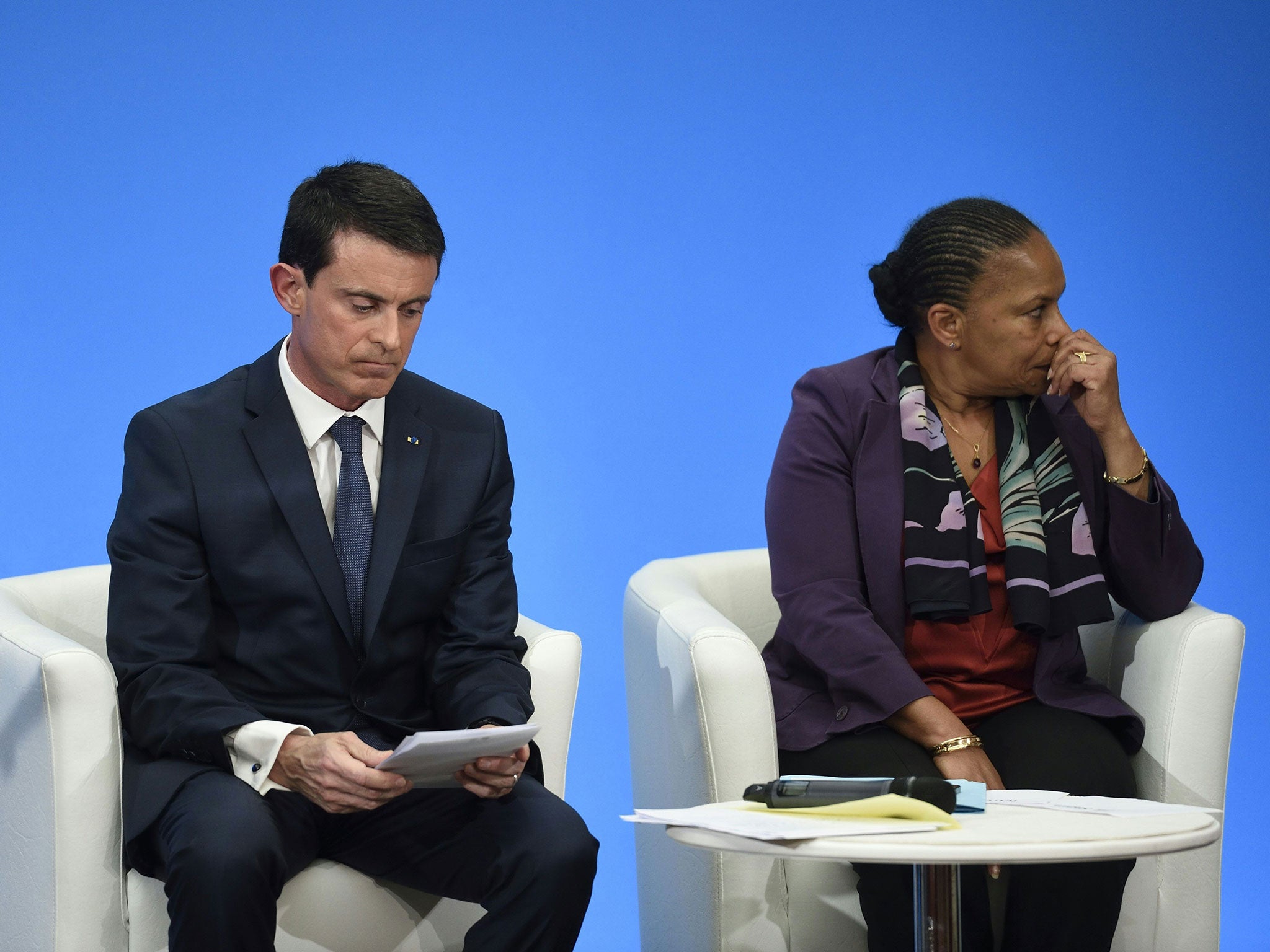Christiane Taubira resigns: French justice minister steps down over plans to strip terrorists of citizenship
The proposed law, put before the French parliament on Wednesday, has divided President Francois Hollande’s ruling socialist party

Your support helps us to tell the story
From reproductive rights to climate change to Big Tech, The Independent is on the ground when the story is developing. Whether it's investigating the financials of Elon Musk's pro-Trump PAC or producing our latest documentary, 'The A Word', which shines a light on the American women fighting for reproductive rights, we know how important it is to parse out the facts from the messaging.
At such a critical moment in US history, we need reporters on the ground. Your donation allows us to keep sending journalists to speak to both sides of the story.
The Independent is trusted by Americans across the entire political spectrum. And unlike many other quality news outlets, we choose not to lock Americans out of our reporting and analysis with paywalls. We believe quality journalism should be available to everyone, paid for by those who can afford it.
Your support makes all the difference.The French government has been thrown into disarray by the resignation of its justice minister ahead of a debate over controversial laws to strip citizenship from convicted terrorists.
The constitutional reforms in the wake of the Paris attacks are popular among conservatives in France, but have proved increasingly divisive for its ruling socialist party.
Christiane Taubira, one of very few black women at the top of French politics and a devoted left-winger, has expressed reservations about the new law.
On Wednesday morning, she tweeted somewhat cryptically: “Sometimes to resist is to remain, sometimes to resist is to leave.”
President Francois Hollande announced her resignation shortly afterwards, just moments before the French parliament was due to take up the issue of the citizenship bill.
He said Ms Taubira would be replaced with immediate effect by Jean-Jacques Urvoas, widely regarded as more supportive of Mr Hollande and the centre-leaning Prime Minister Manuel Valls.
Born in French Guiana on 2 February 1952, Ms Taubira was best known for championing legislation in parliament to legalise same-sex weddings in France.
Praise for her role in driving that change, she was nonetheless accused even by her own party of advocating too soft a touch on law and order – an issue which came to the fore in the wake of the shootings on 13 November which killed 130 people.
France faces new presidential and legislative elections next year, and French media had been talking up the possibility of a cabinet reshuffle before Ms Taubira’s apparent protest.
Join our commenting forum
Join thought-provoking conversations, follow other Independent readers and see their replies
Comments